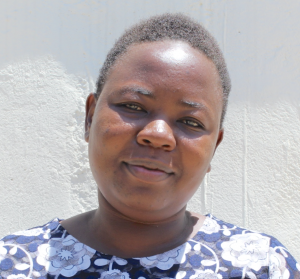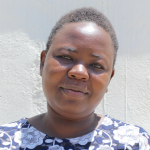Burundu Primary School is a mixed public primary school located along the Malava Samitsi road near Burundu Market. The school compound is neat and clean, with trees planted close to the administration block. The school buildings are modern, with community members in the area doing farming to earn their living.
The school started in the year 1988 under the sponsorship of the Quaker Church. It was established with less than twenty pupils, but with time, the number increased to its current population of 633 students and 17 teachers and staff.
Without a water source on campus, the school relies on a well with a hand pump located in the community about 500 meters away from the school. The well is a primary water source for households in the area. However, the addition of the large student population at the water point adds to congestion, long wait times, and frustration that students have to use the community point.
The demand for water in this community and school is very high, especially during the dry season when water in the borehole goes down. This results in even more overcrowding at the water point as it becomes harder to pump water. In addition, the well is ever-breaking down due to its overuse between the community and school, which drives tensions when the community expects the school to pay to help with the repairs.
"A lot of money is spent during repairs. The school is given a certain percentage to pay. Besides that, precious time for our pupils is wasted since the water point is shared with community members, causing congestion," explained Senior Teacher Isaac Lusala.
The pupils are asked to get water in the morning, during break times, and even when lessons are on if the water runs out at any point during the school day. All of this missed class time has resulted in poor performance among the students because teachers cannot complete their syllabus, and students have no time for revision.
"Our parents and teachers are always worried when we are asked to go and bring water from the well; the road is very busy during the day with motorbikes, so it is easy for pupils to be knocked down," said student Esther.
What We Can Do:
New Well
We conducted a hydrogeological survey at this school, and the results indicated the water table beneath it is an ideal candidate for a borehole well. Due to a borehole well's unique ability to tap into a safe, year-round water column, it will be poised to serve all of the water needs for this school's large population, even through the dry months.
The school will help collect the needed construction materials such as sand, rocks, and water for mixing cement. They will also provide housing and meals for the work team, in addition to providing local laborers. We will complement their materials by providing an expert team of artisans and drilling professionals, tools, hardware, and the hand-pump. Once finished, the school’s students and staff will use water from the well and staff for drinking, handwashing, cooking, cleaning, and much more.
The school and we strongly believe that all of these components will work together to improve standards at this school, which will help lead to better student academic performance and unlock the opportunity for these students to live better, healthier lives.
Handwashing Stations
The student health club will oversee the two new handwashing stations we will provide and ensure they are kept clean and working. The club leaders will fill the handwashing stations with water daily and make sure they are always supplied with a cleaning agent such as soap or ash.
VIP Latrines
Two triple-door latrine blocks will be constructed with local materials that the school will help gather. Three doors will serve the girls, and three doors will serve the boys. These new latrines will have cement floors designed to be easy to use and clean. And with a rain tank right on school property, there should be enough water to keep them clean.
Training on Health, Hygiene, COVID-19, and More
We will hold a one-day intensive training session with students, teachers, and parents. This training will cover a wide range of topics, including COVID-19 symptoms, transmission routes, prevention; personal and environmental hygiene; and the operation and maintenance of the rain tank, latrines, and handwashing stations. There will be a special emphasis on handwashing.
Our team of facilitators will use various methods to train, including participatory hygiene and sanitation transformation and asset-based community development. We will initiate a student health club, which will prepare students to lead other pupils into healthy habits at school and home. We will also lead lectures, group discussions and provide illustrative handouts to teach health topics and promote good hygiene practices within the school, including handwashing and water treatment. We will then conduct a series of follow-up training before transitioning to our regularly scheduled support visits throughout the year.

 Borehole Well and Hand Pump
Borehole Well and Hand Pump
 Rehabilitation Project
Rehabilitation Project









































